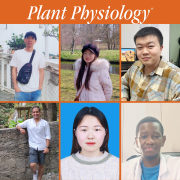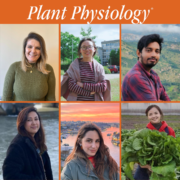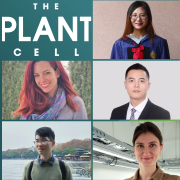Know thyself: the guide to shaping your career trajectory
How the power in knowing one’s self can positively shape a happy and fruitful career-life trajectory
Guest post by Emily Wrenbeck
I was fortunate to have an excellent graduate school experience in the Chemical Engineering Department at Michigan State University. Under the mentorship of Tim Whitehead, I discovered the awesomeness and mysteries in the world of protein science and engineering: sequence-structure-function relationships, mechanisms of evolution, the principles of protein engineering, and a deep respect for how much we still do not understand in the field. More broadly, I also developed a passion for technology development.
As the light at the end of the graduate school tunnel began to dawn, I came to the metaphorical fork that all grads encounter: To postdoc or not to postdoc? That is the question. I knew in my heart three truths:
- I possessed a strong desire to continue to grow as a scientist, particularly in computational protein design and sharpening my coding skills
- I wanted to work as a specialist on a team collaborating to achieve a goal greater than any one part
- I wanted to see science through a non-academic lens
Ultimately, I was eager for an industry scientist position in an environment where collaboration and personal growth are celebrated and encouraged. I was seeking the life of a pack wolf versus a lone wolf if you will. The stars aligned, and I accepted an offer in October 2017 for the position of Protein Engineer at Ginkgo Bioworks in Boston, MA. I was magnetized to Ginkgo by the mission statement: “Make biology easier to engineer.” It is implicitly ambitious, exciting, frontier, and application agnostic. That is a vision I can get behind!
Over the past year and a half, I can say that the quality that applies broadly to my current career-life experience is diversity. At the job-task level, I have the opportunity to work on a vast array of problems since the nature of Protein Engineering skills is mostly agnostic to application. This also creates an opportunity for growth and learning of new techniques, either independently or by cross-training with colleagues. Complementary to that is, since I do work on a number of projects, I have the opportunity to interact with several people on a daily basis. I find enjoyment in that aspect, and it has led me to be more cognizant and proactive in fostering good communication skills (in all aspects of life!). And lastly, the leaders at Ginkgo champion Diversity and Inclusion initiatives in the workplace. Because of the company culture that has been fostered, I truly feel like I can bring my full self to work every day. That is both powerful and rare.
My key takeaway from this first year is that a lone wolf cannot compete with the pack. Working on teams filled with incredibly talented and kind people with broad expertise means that we are able to accomplish goals greater than what any single scientist could hope to achieve. I personally find this thrilling. Even though the science we do is absolutely world-class, I would still cite the people at Ginkgo as my favorite part of my career experience.
Finally, the best piece of advice I can pay forward for upcoming grads for guiding decision-making for a career transition is to get to know yourself. What values are important to you? What work environment(s) do you excel in? How are you motivated? What are your strengths and weaknesses? In what areas do you desire growth? Outlining some answers to these questions can help guide decision-making on life after grad school.
 Author: Emily Wrenbeck, Senior Protein Engineer at Ginkgo Bioworks
Author: Emily Wrenbeck, Senior Protein Engineer at Ginkgo Bioworks










Leave a Reply
Want to join the discussion?Feel free to contribute!